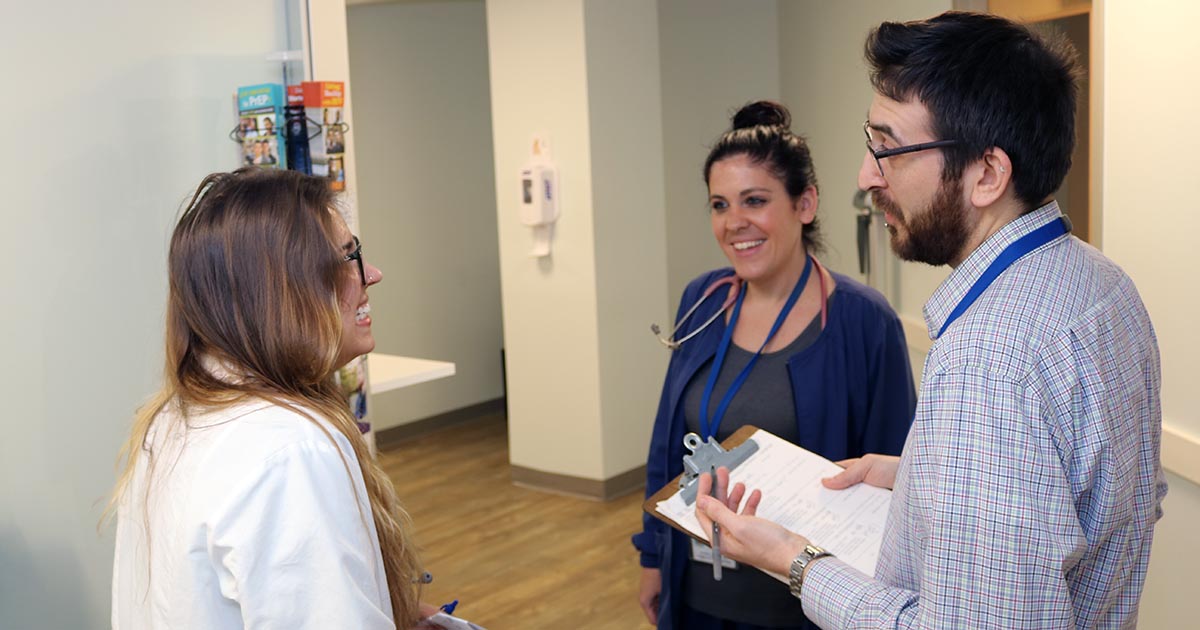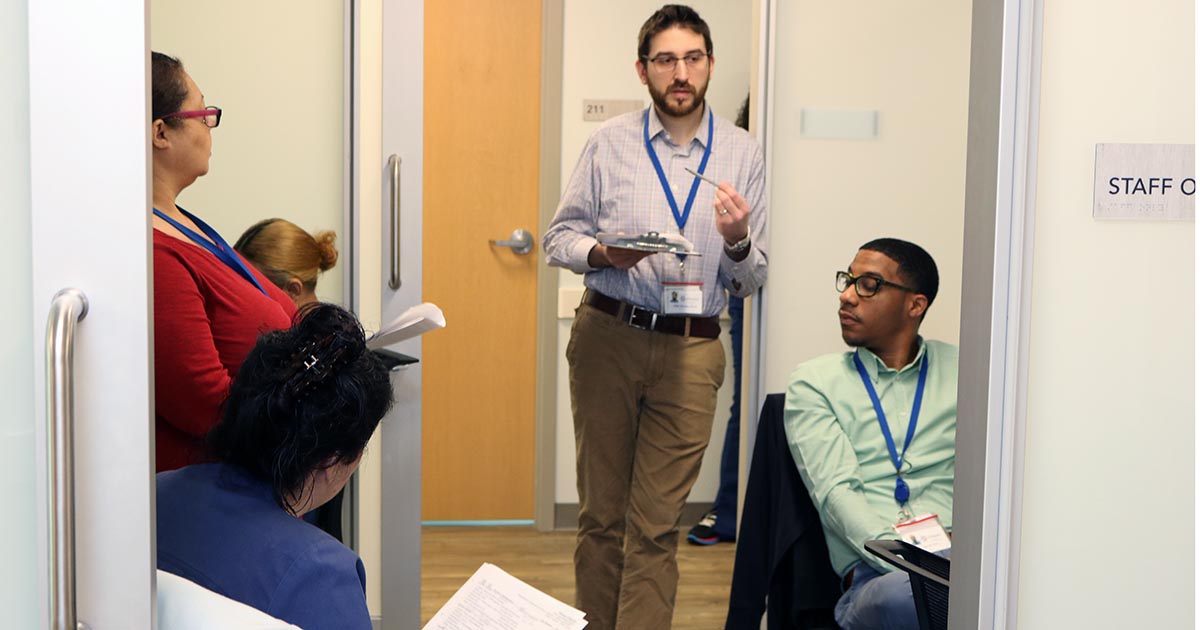Integrating Primary Care and Behavioral Health: Better Outcomes and Care for Patients

Adam Harrison, Psy.D. didn’t go to school to treat back pain.
His decade as a psychologist found him working more with gang-affiliated youth, or students with special education needs, or doing counseling for PTSD.
But on one recent afternoon, his colleague, a primary care nurse at the Wheeler Family Health & Wellness Center, popped into his cubicle on the medical ‘pod’ of the 2nd floor to ask for assistance helping a particular patient who was at the community health center for an appointment.
The patient had severe back pain from an old injury, but that wasn’t what prompted the request.
“It was apparent right away talking to him that he was struggling with depression,” says Harrison.“The injury was causing a loss of independence, a loss of identity.”
The primary care providers treating the injury had conducted a brief screening for depression; they knew from experience that Harrison’s expertise could help the patient achieve a greater level of overall wellness than simply prescribing a pain medication or physical therapy alone.
“We started talking about where he’s at mentally with this injury, and where he wants to go,” Harrison says.“I think the most important thing any of us asked him was, ‘What do YOU want to work on most?’ That answer should drive his care, no matter which of us here is providing it.”

Adam Harrison, Psy.D. (right) works side-by-side at Wheeler's Family Health & Wellness Center
with primary care providers.
Wheeler’s evolution over the last 20 years, when it first began co-locating behavioral health services into local pediatrician offices, has rapidly advanced to the point where experts like Harrison are working side-by-side with primary care and dental practitioners, in one setting, working as one team. The integration is more than a simple co-existence; it’s a true give-and-take between professionals, a sharp contrast to a more traditional siloed approach to healthcare.
“Behavioral health IS primary care,” Harrison says. “Our team works toward the same goal, across disciplines, responding the same needs of the patient: to be well, to be healthy.”
Patients appreciate it, according to feedback received from surveys and responses in the office.While some make a point of saying ‘they don’t need therapy,’ it isn’t about providing a full or comprehensive behavioral health treatment, but more about applying complementary brief interventions that help to promote wellness and recovery. Different levels of care are available as needed, and the referrals go both ways; the Wheeler behavioral health team now routinely considers factors like diabetes or blood pressure when considering a patient’s full health; the entire multidisciplinary care team meets in daily "huddles" to discuss each patient, pulling in a diverse group of experts that includes care managers, patient education specialists, community health workers, and more to look at the whole person.

Starting the day with a "huddle" at Wheeler's Family Health & Wellness Center in Hartford
While the health care literature suggests a whole-person approach to wellness promotes better outcomes, it is difficult to find staff trained in this approach.
As part of the solution, Wheeler is launching a unique internship for psychology doctoral students that trains clinicians with specialized skills for behavioral health consultation in primary care and a truly integrated approach to healthcare and whole-person wellness. Harrison serves as its Integrated Health Care Primary Rotation Supervisor, and Elisabeth Cannata, Ph.D., Wheeler’s Vice President of Community-Based Family Services & Practice Innovation, recognized for her contributions to workforce development for Evidence-Based Practice, is the Lead Psychologist and Director of Training. The first interns are slated to start in the fall of 2019.
“Wheeler is consistently recognized as a forerunner and leader in effective implementation of best practices,” Cannata says. “We also have a strong reputation for workforce development. We believe that our integrated health care psychology program will help address the shortage of hands-on training opportunities to develop psychologists with advanced skills for the future of health care.”
For Harrison, the approach is a kind of natural progression of where he sees care moving, and provides a concrete example of professionals from diverse health disciplines bringing the best of their skillsets in alignment, as collaborators.
In the end, it’s about making patients feel better and stay healthy. His patient with back pain received relief and therapy to become more mobile, and through Harrison’s input, some strategies to work on the stressors he’s dealing with as a result of being hurt. The progress he’s making inspires the whole team when they see better outcomes for patients who, in the past, may have had to see multiple specialties in multiple locations.
“It feels so good to see it all in action,” Harrison says.





